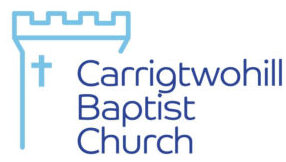This post is written by Isabel Quinlan, who shared her story with our Bible study group recently. Isabel also writes a blog at https://isabelquinlanblog.wordpress.com
“Ruairí wants to go in there” my 2 year old said excitedly, prodding the picture of a farm in the board book i was reading him. I had a jolt of realisation, struck by the profound nature of stories. My 2 year old doesn’t yet know that this little farm is fictitious, but he instinctively knows that stories contain little worlds. Little imaginary offshoots of our own world.
I grew up with a Christian worldview. A view of our world as the creation of a being outside it, a 3D offshoot of his imagination. Through my teens my view changed. Like many other young people in Ireland at the time, I shed the narrative of a creator and dove into atheism, and began to view our world not as an imaginative creation spoken into physical existence, but rather as a collection of matter, governed by laws of physics.
Without an author, there was no overarching storyline unfolding, but rather atoms crashing into each other. There was no author, no narrator declaring the goodness, value or purpose of physical matter.
As a child I read constantly. Night after night I’d stay up too late, devouring stories. I wanted to be a librarian until I found out they didn’t actually get to sit around all day reading. I discovered fantasy at a young age and grew to love the beavers of Narnia, the elves of Rivendell and the Weasley family. As my atheistic worldview developed, my love for stories developed a melancholy edge. It wasn’t obvious to me at the time why this happened. I’d finish rereading the Harry Potter series and feel a deep, hollow sadness. Sadness that the Burrow didn’t exist. Sadness that the Order of the Phoenix and Dumbledore’s army didn’t exist. I wasn’t waiting for my Hogwarts letter but felt somehow their world made much more sense than our own. Even in the darkest chapters of the stories of Middle Earth, there was a palpable purpose, a hope, a reason to persevere and my favourite thing of all – a fellowship.
At 17 I packed my bags and headed to University College Cork to study International Development, with a strong desire to do something good in the world. I eventually left this course but not because I don’t think it’s a noble cause. The opposite is true. This course is what started to unveil the sandy foundation of atheism and what it offered. In researching abuses of women’s rights globally, I was even more determined to help. To uphold some light in a world that only offers darkness and cruelty to so many. However, I began to realise that in a world without authorial intent, imposing seemingly ‘good’ values on other cultures was merely the extension of moral colonialism. I couldn’t consistently tell people they were absolutely wrong about how women were being treated, while at the same time holding the belief that there are no objectively right ways atoms should interact. Atoms don’t have the right to tell other atoms how to exist. This was a major turning point in my life. Over the course of a few months I began reading the Bible again and found a rock solid basis for human value and human rights. My inner conflict crescendoed. To accept this solid foundation meant accepting that I was a character in a story written by someone outside of our world. To paraphrase fantasy author N.D Wilson, rejecting God because there is evil in the world is tantamount to Frodo saying there’s no J.R.R Tolkien because orcs exist.
I embraced the worldview of my childhood, turned my back on my past wandering and sought forgiveness from the one who spoke our world into existence. I found forgiveness in Jesus, and along with that, the greatest story.
I didn’t anticipate it, but one of the gifts this change brought about was that the stories from my childhood came to life again. The great battles of light against darkness, the sacrificial lives of my heroes, the unfolding of stories in which perseverance against all odds and ultimately the triumph of good over evil became real.
I realise now that these stories, especially the really good ones (written by fellow Christians Tolkien and C.S Lewis) are not more excellent than our own world. They’re reimagined offshoots of it. The great fall of humanity into darkness, the great sacrificial redemption of a saviour, the fellowship and shared purpose of those who believe in good, this story has been unfolding since the beginning.
And our role in this story? We should want to be great characters, but we can’t do that without first being great readers. We need to recognise the narrative arc of the story we’re in, the chapter our lives are in now and the type of character we have the opportunity to be. A character on the hard won road to glory, in the company of a great fellowship. So let’s read our world without the fogged-up glasses of atheism, secularism or any other pair of befuddling spectacles for that matter. Turn the pages and look forward to the ending when in the words of Samwise Gamgee (spoiler alert), “everything sad becomes untrue”.
